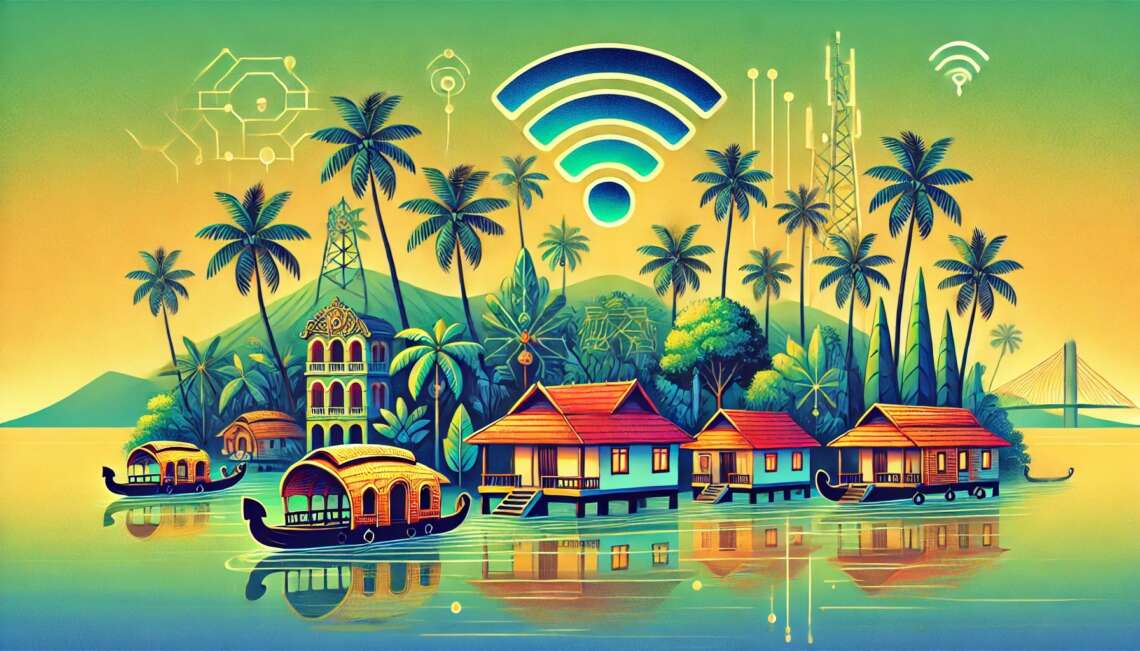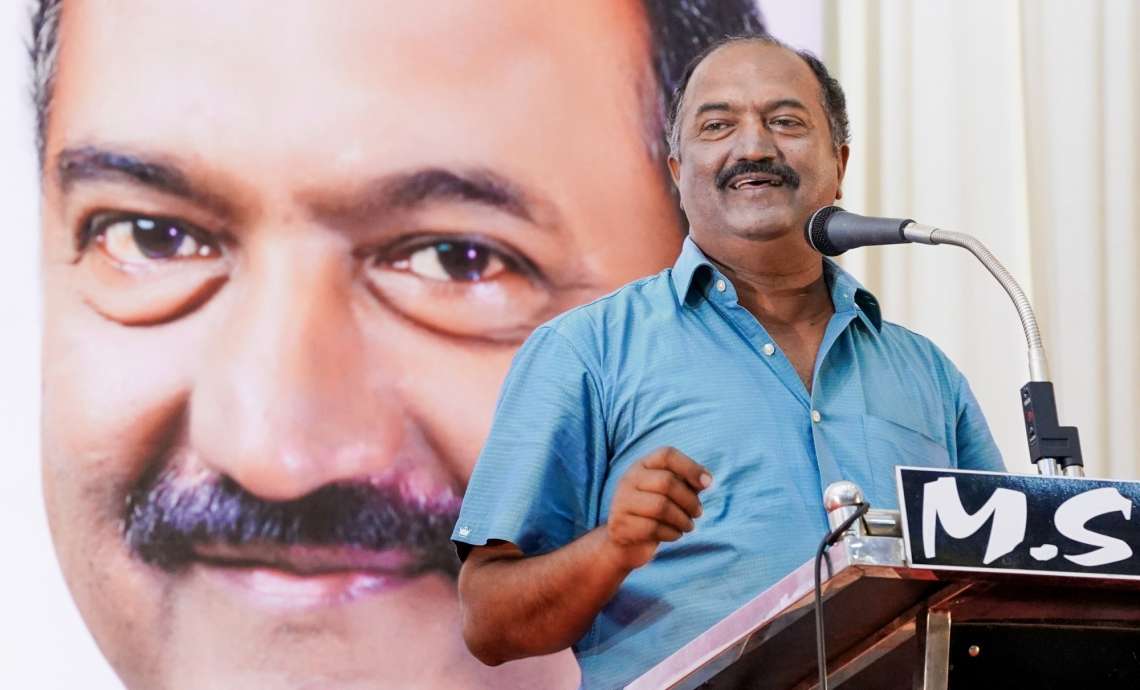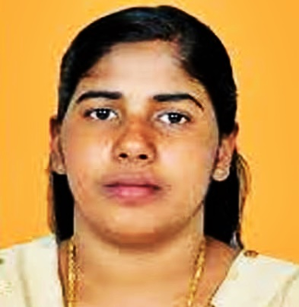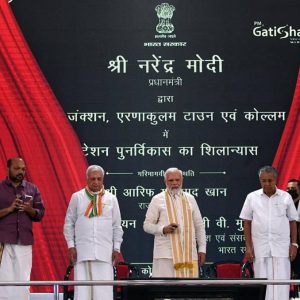The pervasive influence of the internet and mobile phones has brought about a significant transformation in Kerala’s culture, interpersonal relationships, community discussions, and family dynamics, a report by Abhish K. Bose
While internet gaming addiction among children and frequent usage among other segments, is a pressing concern, it is crucial to acknowledge the profound impact of the internet and mobile phones on the daily lives of the people.
Apart from these issues, the influence of the internet and mobile phones has also contributed to the rise of various crimes and corruption. Internet addiction, including gaming addiction, has become a menace comparable to the addiction of intoxicants. According to sources, children are particularly vulnerable to falling prey to internet addiction. Digital addiction often leads individuals, both children and adults, to engage in criminal offenses.
The internet addiction has permeated the lives of individuals, exerting a profound influence on their physical, mental, and social well-being. The ‘internet addiction disorder’ has destroyed the real faculties of individuals, eroded social life, and ruined personal relationships, ultimately debilitating mental health. In Kerala’s case, according to the statistics 25 children have committed suicide in the state from the period from 2019 to 2022 July 4th owing to the usage of mobile phone and internet. This point towards to the grave nature of the crisis.
As per the statistics, among the 142 crores of people in the country more than 85 crore people are using internet. According to the studies conducted by Cyber media research, a marketing company, at the period of lockdown there was a 120 percentage of increase in internet usage in India compared to the previous period. According to the data reports, in 2023, India enjoys first position in the global level in terms of the highest number of internet consumers.
According to the studies conducted by the NIMHANS shut clinic among the online users, 59.9 percentage of the online consumers are playing games, whereas 12.1 percentage of people uses social media networking, 9.1 percentage of the people listen to the music online and views videos and download materials. A 6.7 percentage of people uses internet for study and for job, and 5.2 percentage of the people search information through the internet and 4.5 percentage of people communicate with others through online.
Psychologists define internet addiction as spending excessive time in front of the internet for six months to one year, excluding professional use, which adversely affects social relationships. The symptoms of internet addiction includes uncontrolled and continuous use for several hours, leading to detrimental effects on food habits, sleep patterns, job performance, studies, other responsibilities, and social relationships.
The Consequences of excessive Internet use on Children’s mental and physical health is devastating, says Dr Rajesh Sagar, Professor of Psychiatry at the All India Institute of Medical Sciences, Delhi.
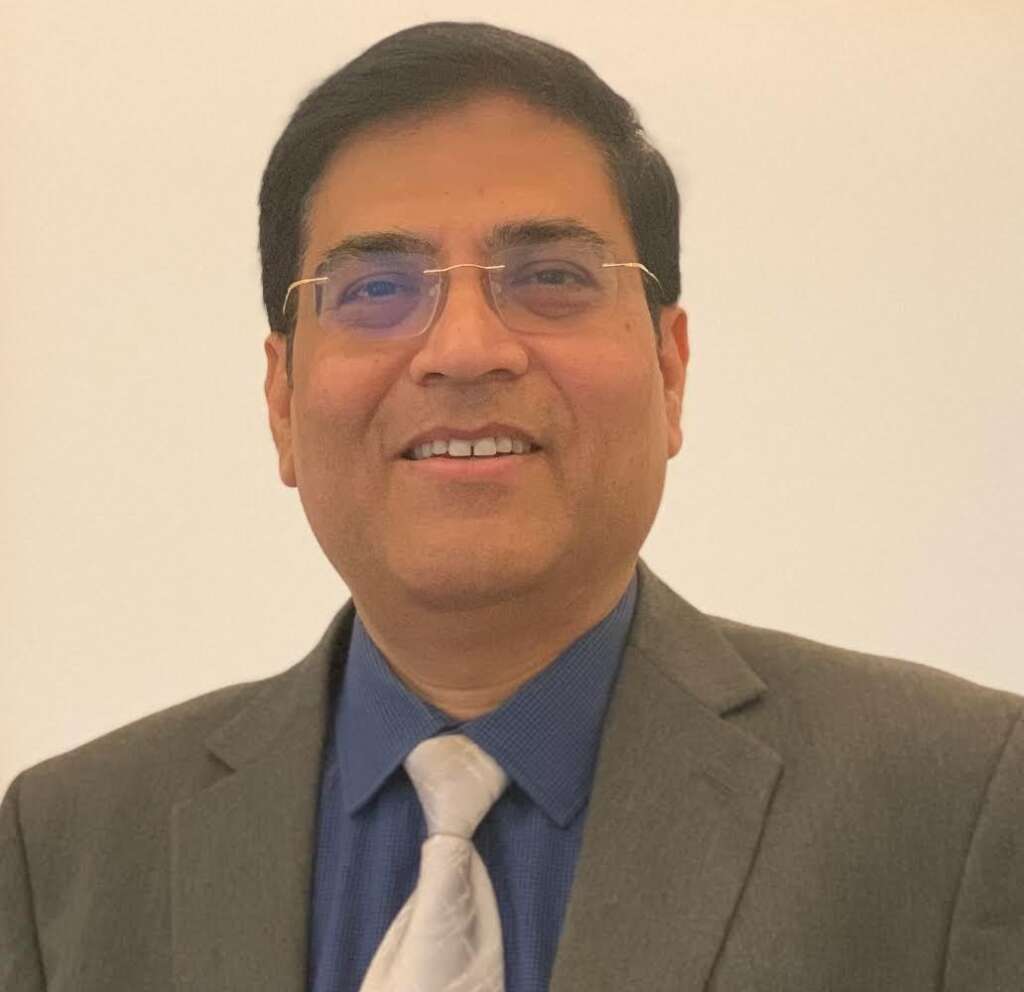
“As a psychiatrist, I have witnessed first hand the alarming rise of excessive Internet Use (EIU) among children. The consequences are far-reaching, affecting not only their mental health but also their physical well-being, social relationships, and academic performance”, Dr Sagar said.
“Research has shown that excessive internet use can alter the brain’s structure and function, particularly in children. The constant stimulation of the mesocorticolimbic dopamine system can lead to dopamine dysregulation, impairing impulse control and increasing the risk of addiction”, he pointed out.
“The effects of excessive internet use on children’s mental health are equally concerning. Excessive internet use has bidirectional relationship with increased symptoms of anxiety, depression, and attention deficit hyperactivity disorder (ADHD)”, Dr Sagar maintained. “This means that increase in such clinical symptoms may be cause or effect of excessive internet use. Children who spend more time online are also more likely to experience sleep disturbances, social withdrawal, and decreased physical activity and vice versa”, he added.
So, what can be done to address this growing concern? As a society, we must take a comprehensive approach to promoting healthy internet use habits among children”, he demanded.
“Parents play a critical role in setting clear boundaries and encouraging offline activities. Schools should integrate digital literacy programs to teach responsible internet habits early on. Mental health professionals must also be equipped to assess and treat excessive internet use, using evidence-based interventions such as cognitive-behavioral therapy (CBT)”, he pointed out.
“CBT has been shown to be effective in reducing gaming disorder symptoms and improving overall mental well-being. Neurofeedback therapy, which uses real-time brainwave monitoring to train better self-control and attention regulation, is also a promising intervention'”, he postulated
Dr Sagar opined that it is our collective responsibility to ensure that children develop healthy relationships with technology. By working together, we can mitigate the devastating consequences of excessive internet use and promote a healthier, more balanced digital landscape for future generations”, he stated.
The Double-Edged Sword of Tech Integration
The internet revolution has also trickled a transformation in Kerala’s rapid integration into the digital world. This has brought about both opportunities and challenges, affecting the state’s cognitive, emotional, and physical well-being. The impact of the internet and mobile phones on Kerala’s culture, social relationships, and individual identities, including the rise of hybrid cultural identities and the erosion of traditional forms of expression. The effects of technological integration in Kerala cannot be understood in isolation from the state’s broader socioeconomic transformations.
Dr Manoj Kumar Sharma, Professor of Clinical Psychology and Coordinator of SHUT clinic (Service for Healthy Use of Technology),NCWB, NIMHANS, Bengaluru, said that Kerala has long been recognised for its high literacy rates and progressive social indicators, is now facing the dual-edged sword of technological integration: while it brings significant opportunities, it also presents new challenges. Most of these are common across cultures and populations”, he said.

Cognitive Well-being: Dr Sharma added that the easy access to internet has dramatically expanded access to knowledge and learning, fostering educational and intellectual opportunities. “This has expanded online learning, especially during the COVID-19 pandemic. Digital literacy programs and governmental initiatives like the “Akshaya Project” have enabled widespread access to technology, even in rural areas. “However, there are also cognitive challenges”, he observed.
“The shift from traditional forms of knowledge acquisition, like reading books or attending lectures, to more fragmented and often superficial forms of information processing (think of short videos, social media scrolls, or clickbait headlines) may have an impact on deep thinking, critical analysis, memory retention and attention spans”, he maintained.
“Kerala, with its intellectual heritage, may find that this shift challenges its strong tradition of rigorous debate, political discourse, and scholarly pursuit.
Emotional Well-being: Dr Sharma observed that on the emotional front, the internet and mobile phones have introduced both positive and negative dynamics. “The ability to stay connected with family members abroad, particularly in the context of Kerala’s large diaspora, may help bridge emotional distances for many. However, while it fosters a sense of community for many, it may contribute to or maintain feelings of anxiety, depression, and isolation, particularly among younger generations”, he pointed out.
“The pressure to present a curated, idealized version of oneself on social media platforms can contribute to low self-esteem and mental health issues. Kerala, known for its high levels of social activism, has also seen increasing debates around mental health awareness, with more individuals now using digital platforms to seek help or discuss issues related to stress, anxiety, and societal pressures”, he maintained.
But there’s also the darker side—cyberbullying, trolling, and the viral spread of harmful rumours.
“Cybercrimes, particularly financial fraud attacks targeting the elderly in Kerala have exploded in number, leaving the victims with substantial emotional damage along with financial losses”, he said.
Physical Well-being: “The physical consequences of mobile phone and internet use are becoming increasingly noticeable. Just like other states, the pre-digital generations in Kerala had a strong culture of outdoor activities, and robust health”, he opined.
” As people spend more time glued to their screens, whether for work, entertainment, or social media, there’s a rise in lifestyle-related ailments such as eye strain, poor posture, and obesity”, he added.
“However, Kerala also presents an interesting case in how its health consciousness has translated into the digital age. With its rich tradition in Ayurveda and holistic health practices, the state has seen a rise in the use of online sources of information to improve their health, especially for the large retired and elderly community. But the reality of “screen time” often overshadows these benefits, especially as younger generations gravitate toward digital entertainment rather than physical activity”, he said.
“For younger generations, especially those born into the digital world, the internet has reshaped cultural identity. “Traditional forms of expression such as folklore, classical music, and the arts now compete with global pop culture, which is easily accessible online”.
” This has given rise to a hybrid cultural identity, where local traditions coexist with global trends. There’s an increased blending of Malayalam with English in social media interactions, and trends from Bollywood, Hollywood, and even international acts are becoming deeply embedded in the local culture”, Dr Kumar explained about the change in culture.
“While this fosters a sense of global connectedness, it may also create tensions around cultural preservation and authenticity.
“Kerala has long been a state known for its progressive politics, and the internet has become a powerful tool for advocacy. From local issues such as environmental conservation (like the anti-Silent Valley protests) to global movements (such as the Kerala government’s stance on LGBTQ+ rights), social media and digital platforms have facilitated rapid mobilization and public discourse. However, these platforms also amplify polarization and echo chambers, often entrenching ideological divides and creating new forms of conflict.
However, youth are also more vulnerable to the pressures of digital life, including addiction to social media and the rise of digital stress.
For older generations, the digital shift has been more disruptive. Many of Kerala’s elders, who grew up in a close-knit, physically interactive social structure, find the rise of digital communication challenging.
Dr Sharma said that the communication has substantially affected.”The erosion of face-to-face interactions can lead to a sense of disconnection or loneliness. Older citizens in rural areas, who may not have the same access to technology or may struggle with digital literacy, face a new divide, even as younger family members embrace the digital age”, he said.
He said that the digital interaction may gradually undermine certain cultural values.
“The cultural emphasis on familial care, community, and connection might be gradually undermined by the convenience and isolated nature of digital interaction. While it is easier to observe the impact of these changes on the behaviour of its citizens, it is too simplistic to assume an impact on the character and temperament of individuals”, he added.
“Undoubtedly, the means of emotional and social connection in a society and a widening gap between generations will impact the developing personality and emotional resilience of the upcoming generation. A word of caution – the impact that technology has had in Kerala cannot be disentangled from the effect of the socioeconomic upheavals in the state – increased rates of migration of its population abroad with a predominance of the elderly, retired individuals in the urban centres and the waves of migration from other states to fill the working-class gaps.
“Forces more complex than the internet may have affected the very fabric of the families and society in Kerala leading to a lot of the disconnect currently being seen”, Dr Sharma said.
Disappointment in the digital dream
Noted social scientist Shiv Viswanathan took a unique view on the Malayali’s interaction with internet and mobile phones.
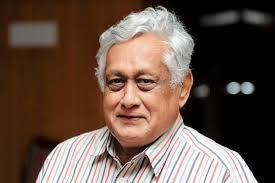
He said that Kerala’s paradox is fascinating – radical in politics, timid in tech. The Malayali imagination, so potent in literature, is eerily silent on electronics. A new dream, a new radicalism is needed to bridge this gap and unlock Kerala’s true potential, he says.
Shiv Viswanathan says that Kerala’s unique blend of residential and migrant cultures has created a distinct mobility and accessibility. However, the state’s radical approach to politics has not been replicated in the fields of electronics and science”, he opined. ” Despite being home to major electronics industries, including space research, Kerala has failed to capitalise on its potential due to a lack of effective marketing and a dearth of sociological understanding”, he observed.
“The state’s reputation as a pioneer in migration, radicalism, and innovative politics has not been matched by its performance in electronics. Instead, Kerala has created a parallel society that falls short of the Malayali imagination. The state lacks a cosmopolitan literary imagination, particularly in the realms of artificial intelligence and science fiction”, he pointed out.
“Kerala finds itself caught between a vernacular and cosmopolitan identity, struggling to establish meaningful connections”, he maintained.” To overcome this, the state needs to develop its own science fiction and radical approach to electronics, sparking a new dream that can propel it forward”, he opined. Currently, the narrative surrounding Kerala’s electronics sector is one of disappointment rather than optimism”, he maintained.
Crime in the digital age: How technology is aiding fraudsters
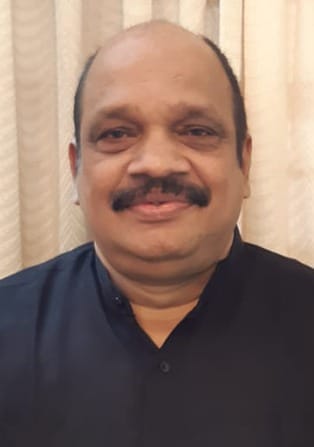
The advent of the internet has ushered in a new era of crime, one that exploits the vast possibilities of technology to deceive and manipulate,” noted KM Antony IPS, a retired Superintendent of Police. “Despite repeated warnings in the media and growing public awareness, many individuals remain vulnerable to financial frauds perpetrated through the internet. The promise of hefty profits in online trading has proven to be a particularly irresistible trap, with numerous people falling prey to the cunning tactics of fraudsters”, he added. Furthermore, the ubiquity of mobile phones has given rise to a new breed of crime, one that leverages the convenience and anonymity of mobile technology to wreak havoc on unsuspecting victims.


